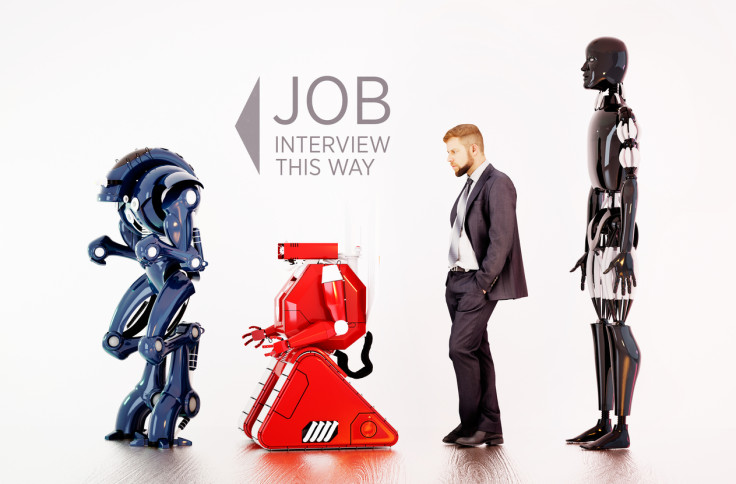If you automate your job to make it easier, is it unethical to not tell your employer?
Forget about robots taking over jobs - some IT people are using computers to greatly simplify their own jobs.

There are increasing fears that robots will take over our jobs one day soon, but what about looking at it from another perspective?
It doesn't happen often, but software engineers are starting to admit on internet forums that it is quite possible to automate a great deal of their jobs to make their lives easier.
All it takes is a bit of well-programmed code, a lack of oversight, and sometimes the fact that bosses and other employees are not well-versed in IT.
But if you know that you are not working to your fullest capabilities because a computer is doing most of the work for you, should you tell your employer?
The situation
On Wednesday 28 June, the user Etherable posed this question on the question and answer website Stack Exchange. In his post, he states that he is a programmer responsible for maintaining an old system responsible for putting data into spreadsheets.
To make it work, he has to write multiple SQL scripts to layout the data properly, so after a year in the job, he wrote a software program that automates most of the job for him. His job enables him to work remotely from home so that he can take care of his son.
"So what used to take the last guy like a month, now takes maybe 10 minutes to clean the spreadsheet and run it through the program. There might be amendments to the spec and corresponding though email etc, but overall, I spend probably one to two hours per week on my job for which I am getting a full time wage," writes Etherable.
"At the same time, it doesn't feel like I'm doing the right thing. I mean, right now, once I get the specs, I run it through my program — then every week or so, I tell them I've completed some part of it and get them to test it. I even insert a few bugs here and there to make it look like it's been generated by a human.
"Now the problem is, do I tell them? If I tell them, they will probably just take the program and get rid of me. This isn't like a company with tons of IT work — they have a legacy system where they keep all their customer data since forever, and they just need someone to maintain it.
"I really enjoy the free time but would it be unethical to continue with this arrangement without mentioning anything? It's not like I'm cheating the company."
Is it wrong to automate your own job?

Etherable's situation sounds very similar to a post that blew up on Reddit in June 2016.
A programmer known only as FiletOFish1066 told the social bookmarking site that he had spent six years doing nothing but play video games, go to the gym and drink beer during work hours, because he had successfully automated his job and no one had ever noticed as long as results were produced.
The only reason he was fired was because finally the IT department had realised what he was doing.
"If you go to a mechanic and he says $200, come back in four hours and later you find out it took him 15 minutes and $5 in parts is that unethical? How is this different? He charged you far more than it cost," the user gman, a former Google Chrome developer, said in response to Etherable's question.
"He told you four hours so you'd feel it was worth $200, whereas if he said '$200, come back in 15mins', you might have balked at the price. And yet since you couldn't/wouldn't/didn't do the job yourself... $200 is acceptable by the fact that you were willing to pay it."
Other users do feel Etherable is being unethical primarily because he has to spend time to create bugs that simulate human error.
"You're defrauding your employer. Yes, you would argue that someone else may have not figured it out. Yes, you probably really like getting paid to run a script once a month. No, that doesn't change that you are essentially defrauding your employer," writes the user Magisch.
"I'd suggest you come clean with this immediately and hope that they'll see it as a demonstration of your value and give you other work. Depending on how laid back they are they might even go, 'good for you, we don't really care how it's done as long as it is'. But that is not your place to decide. They're paying you to work full time, you're not."
Could automation make multiple jobs obsolete?
Several users have suggested that instead of continuing to work in this way, Etherable could instead sell the software program he has created, however, this could lead to him making not just his job but also the jobs of the analysts who review the spreadsheets obsolete.
"Ultimately, your job is at risk no matter what you do, but you do hold some cards here: you are competitively performing the role you're engaged in, something that others may not be able to do easily," writes the user Danikov.
"If there is no competition (whether by the obscurity of the work or any other reasons), it's not unethical to make that kind of money for the work you're doing; supply and demand dictates that the work you're doing really is that valuable as they're willing to pay for it.
"However, there is always a latent risk that someone else may discover the potential for automation independently and undercut you. Remember that companies will automate workers out of jobs all the time: it's not unethical, it's just business, so the trick is to not get screwed in the process."
What do you think about the engineer's dilemma? Tell us what you think @IBTimesUKTech
© Copyright IBTimes 2025. All rights reserved.






















